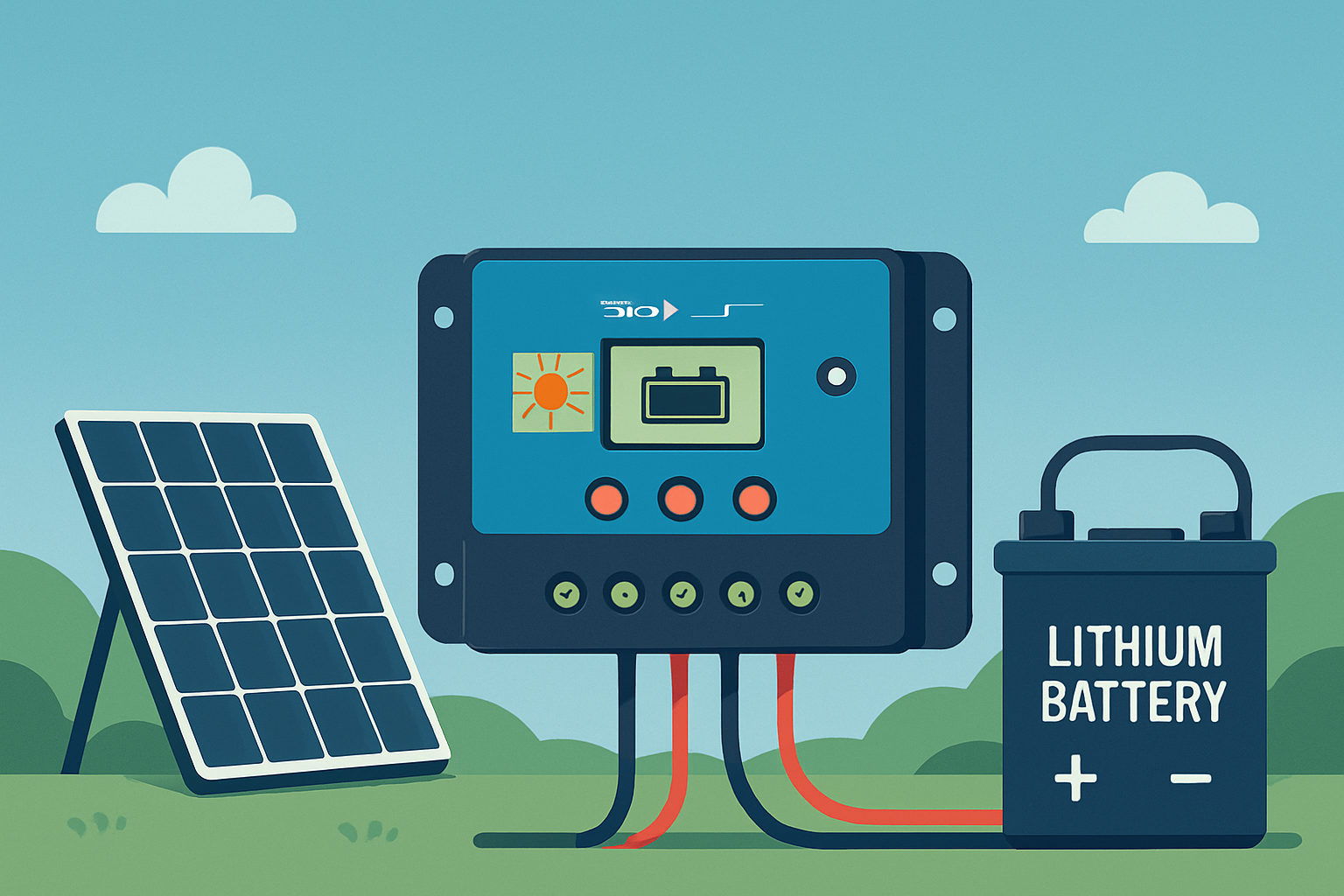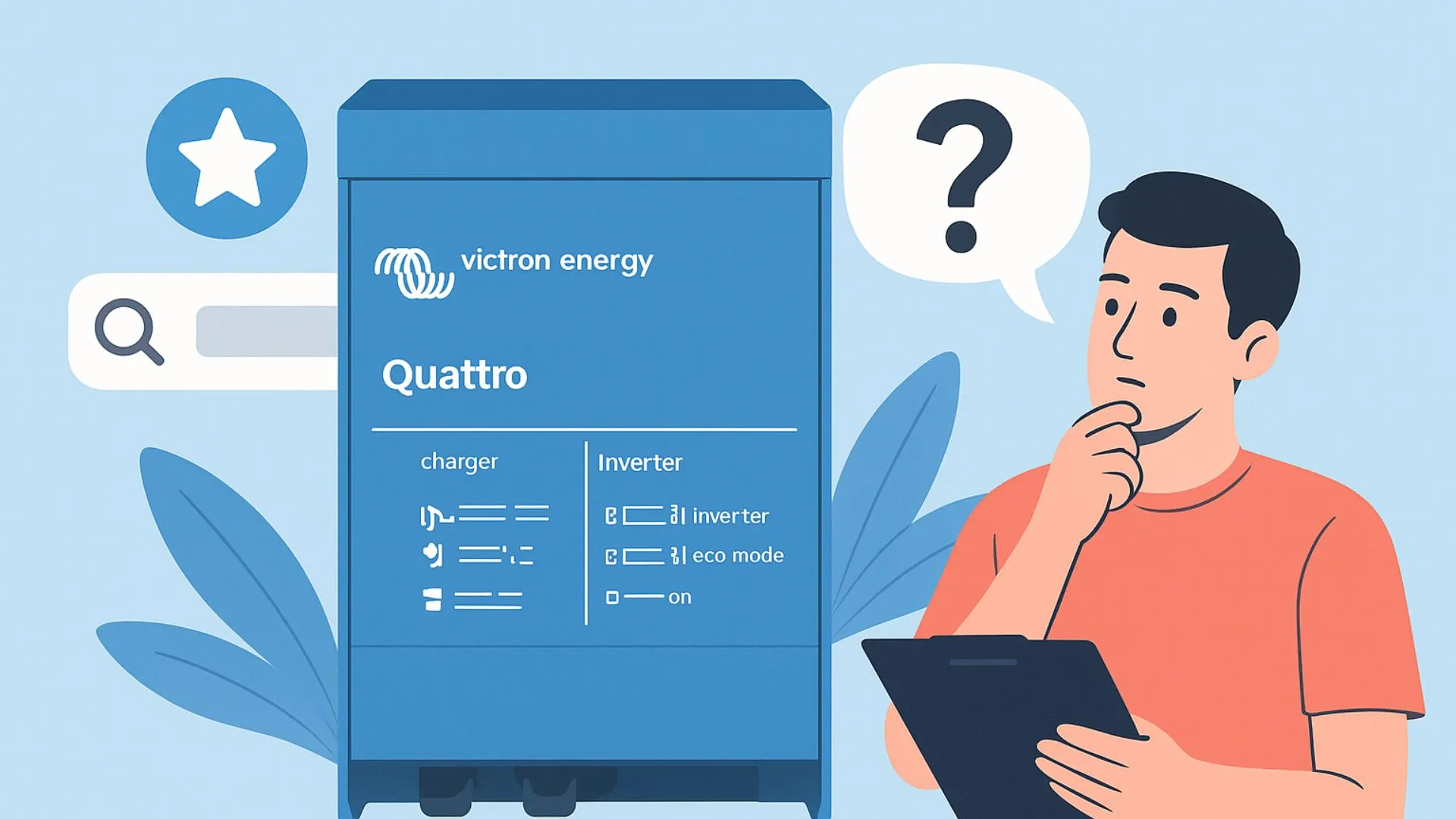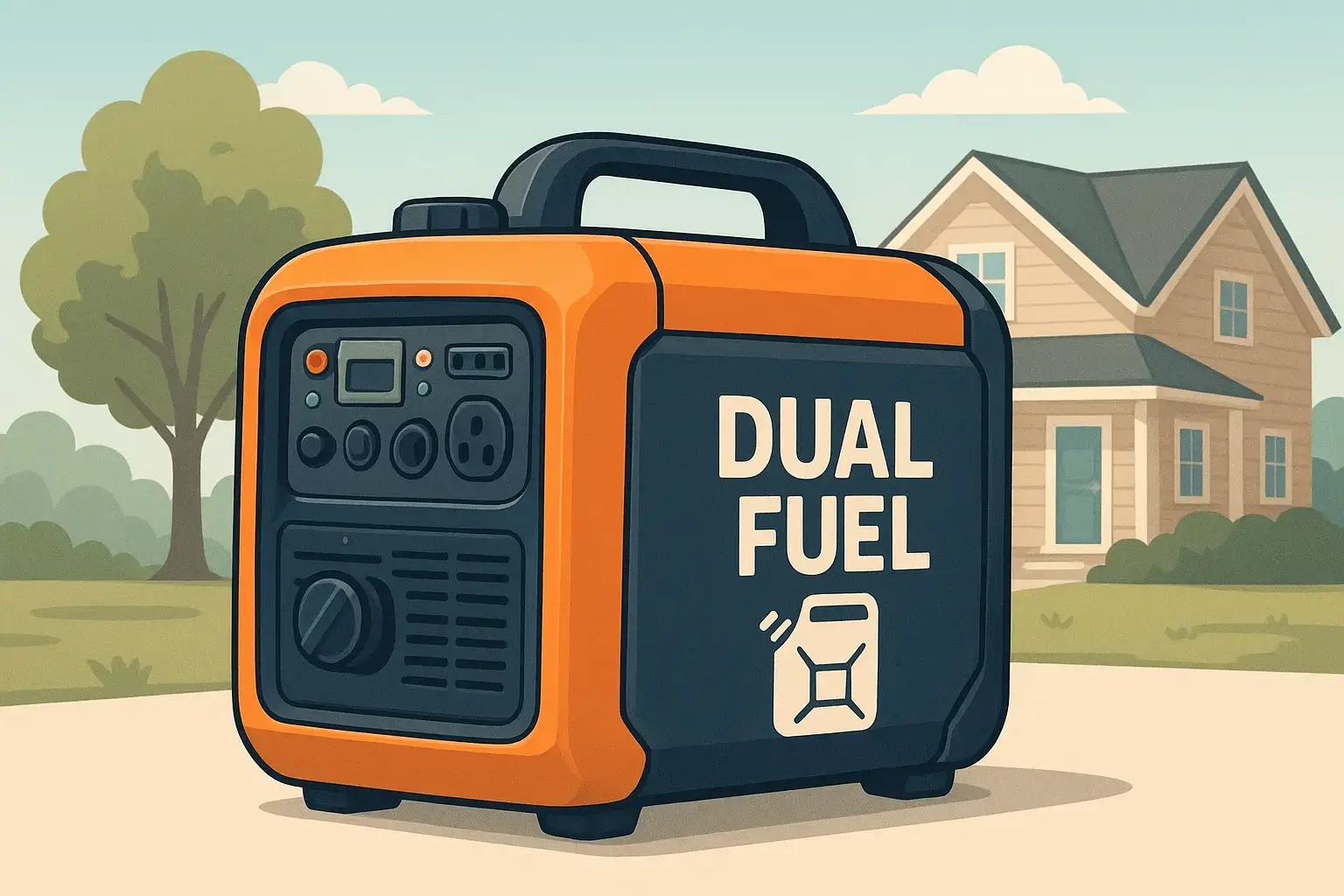Table of Contents
- Introduction 📜
- 1. Why You Need a Specialized Solar Charge Controller for Lithium Batteries
- 2. Top Features to Look for in the Best Solar Charge Controller for Lithium Batteries
- 3. Our Top Picks: Best Solar Charge Controllers for Lithium Batteries
- 4. How to Choose the Right Solar Charge Controller for Your Lithium Batteries
- Closing Thoughts 💭
- Frequently Asked Questions ❓
- Sources and Further Reading 💡
⚠️ When shopping for energy controllers like solar charge controls, we strongly recommend checking out Amazon's daily deals for potential savings. These promotions often change, so reviewing them before purchasing can help you find the best price on the right model. Make sure you don't miss out!
📌 This post may contain affiliate links, so we may receive compensation if you purchase products linked to below. As an Amazon Associate, I earn from qualifying purchases. This helps support our work and allows us to create more helpful content for you at no additional cost to you. Read our disclosure for more information.
Introduction 📜
As more solar energy users upgrade to lithium batteries for their superior lifespan, faster charging, and higher efficiency, choosing the right solar charge controller for lithium batteries has never been more important. Unlike traditional battery types, lithium batteries require precise charging management to ensure safety, maximize energy capacity, and extend battery life. Not every charge controller is built to handle the unique needs of lithium chemistry—so selecting a lithium-compatible solar charge controller is key to building a reliable and high-performing solar power system.
1. Why You Need a Specialized Solar Charge Controller for Lithium Batteries
Lithium batteries have different charging requirements compared to traditional lead-acid batteries. They need:
- Accurate Voltage Regulation: The best solar charge controller for lithium batteries offers precise voltage control to prevent overcharging or deep discharge, protecting your battery’s health and maximizing its lifespan.
- Temperature Compensation: A high-quality solar charge controller for lithium batteries includes temperature sensors and compensation algorithms to adjust charging based on environmental conditions—crucial for performance and safety.
- Multi-Stage Charging Profiles: Look for controllers that provide advanced multi-stage charging specifically optimized for lithium chemistry, ensuring faster, safer, and more efficient charging cycles.
Using a generic or incompatible charge controller instead of the best solar charge controller for lithium batteries can lead to battery damage, reduced performance, and even voided warranties—putting your entire solar power system at risk.
2. Top Features to Look for in the Best Solar Charge Controller for Lithium Batteries
- Lithium Battery Compatibility: The best solar charge controller for lithium batteries must explicitly support lithium chemistries such as Li-ion, LiFePO₄, or LTO for safe and efficient charging.
- MPPT Technology: To maximize energy harvest, choose an MPPT-based solar charge controller for lithium batteries. MPPT models outperform PWM controllers by optimizing voltage and current in real time.
- Advanced Battery Management: Look for features tailored to lithium battery protection—like overcharge prevention, thermal monitoring, and optimized charging profiles—to ensure the best performance and longevity.
- Programmable Charging Parameters: The best solar charge controllers for lithium batteries allow custom voltage and current settings based on your battery's specifications, improving safety and efficiency.
- Durability & Safety Certifications: A top-tier solar charge controller for lithium batteries should have robust build quality, built-in safety protections, and certifications like CE, UL, or IEC for guaranteed reliability.
3. Our Top Picks: Best Solar Charge Controllers for Lithium Batteries
| Feature | Why It Matters | What to Look For |
|---|---|---|
| ✔ Lithium Battery Compatibility | Ensures safe and optimal charging for lithium batteries | Support for Li-ion, LiFePO₄, or specific lithium chemistries |
| ✔ Charging Technology | Affects how efficiently energy is harvested | MPPT preferred over PWM for higher efficiency |
| ✔ Safety Features | Protects battery from damage and prolongs lifespan | Overcharge protection, temperature sensors, certifications (CE, UL, IEC) |
| ✔ Programmable Settings | Customizes charging to your battery’s specifications | Adjustable voltage and current parameters |
| ✔ System Capacity | Matches your solar panel and battery size for optimal performance | Amperage rating fitting your current and future setup |
| ✔ Smart Monitoring | Allows remote system monitoring and control | Bluetooth, Wi-Fi, and app integration features |
Choosing the best solar charge controller for lithium batteries is essential to protect your investment and maximize your solar system’s performance. Here are key factors to consider before selecting a controller:
- Lithium battery compatibility: Ensure the controller supports your specific lithium chemistry.
- Charging technology: MPPT controllers provide higher efficiency than PWM models.
- Safety features: Look for overcharge protection, temperature compensation, and certifications.
- System size and expansion: Match the controller to your current solar array and future plans.
With these criteria in mind, you’ll be well-equipped to choose a controller that ensures safe, efficient, and long-lasting lithium battery performance. That’s why many of the models we feature are Victron solar charge controllers—known for their industry-leading reliability, advanced MPPT technology, and smart battery management. So, is a Victron solar charge controller the best choice for lithium batteries? Explore our store for Victron Energy products and accessories to find top-rated options trusted by professionals.
1. Victron Energy SmartSolar MPPT Solar Charge Controller
Pros
✓ High Efficiency: Fast MPPT tracking maximizes power output, even in shade or clouds; charges large battery banks effectively.
✓ Bluetooth & App: Built-in Bluetooth enables easy setup and monitoring via the VictronConnect app on Android/iOS.
✓ Durable Build: Solid metal heat sink and quality connectors ensure reliability and longevity.
Cons
✗ App Limitations: Can be laggy and only connects to one controller at a time.
✗ No Display: Requires a smart device for detailed monitoring.
2. Victron Energy SmartSolar MPPT Tr VE.
Pros
✓ Exceptional efficiency and performance: With ultra-fast MPPT tracking that maximizes energy harvest even in shaded or low-light conditions. Users report output exceeding panel ratings, especially with bifacial panels.
✓ Simple and intuitive setup: With Bluetooth connectivity and the VictronConnect app allowing real-time monitoring, easy firmware updates, battery presets, and full customization—ideal for both beginners and advanced users.
✓ Available in multiple high-performance variants: Suits different system sizes and needs: 150V 70A, 150V 85A, 150V 100A, 250V 70A, 250V 85A, and 250V 100A.
Cons
✗ Potential voltage compatibility confusion: Certain models may function correctly with 36V or 48V systems despite marketing claims—careful model selection is advised.
✗ Higher price point: Compared to many MPPT controllers, which may deter budget-conscious users even though the value and performance are top-tier.
| Model | Voltage Range | Max Amps | System Voltage | Lithium Support | Best For |
|---|---|---|---|---|---|
| MPPT 75/15 | 75V | 15A | 12V / 24V | ✅ Basic LiFePO₄ preset | Small lithium banks (RV, van) |
| MPPT 100/20 | 100V | 20A | 48V only | ✅ Full support | Small 48V lithium systems |
| MPPT 100/30 | 100V | 30A | 12V / 24V | ✅ With preset or manual config | Entry-level LiFePO₄ banks |
| MPPT 150/45 | 150V | 45A | 12V / 24V / 36V / 48V | ✅ Full lithium support | Medium solar setups |
| MPPT 150/60 (MC4) | 150V | 60A | 12V / 24V / 36V / 48V | ✅ Full support + easy wiring | Mid-large LiFePO₄ systems |
| MPPT 150/70 Tr | 150V | 70A | 12V / 24V / 36V / 48V | ✅ Fully compatible | Larger off-grid lithium systems |
| MPPT 150/85 Tr VE.Can | 150V | 85A | 12V / 24V / 36V / 48V | ✅ Advanced control via app | High-efficiency lithium banks |
4. How to Choose the Right Solar Charge Controller for Your Lithium Batteries
- Know your battery specs: Identify your lithium battery’s voltage, capacity, and chemistry type (e.g., LiFePO₄). These details are crucial for selecting a charge controller that can handle your battery safely and efficiently.
- Match your solar panel output: Ensure your charge controller is compatible with the voltage and current produced by your solar panels. Oversized or undersized controllers can reduce efficiency or damage your system.
- Consider future expansion: If you plan to grow your solar system later, choose a charge controller with a higher amperage rating to accommodate additional panels or batteries.
- Look for smart features: Modern charge controllers offer remote monitoring, Bluetooth connectivity, programmable settings, and app integration—enhancing system control and user experience.
Closing Thoughts 💭
Investing in the best solar charge controller for lithium batteries is essential for maximizing your solar power system's performance. A high-quality lithium-compatible charge controller not only ensures longer battery life but also provides safe and efficient charging—crucial for protecting your lithium battery investment. Whether you're upgrading an existing system or building a new off-grid solar setup, choosing the right solar charge controller designed specifically for lithium batteries is a smart step toward energy efficiency, system longevity, and peace of mind. For homeowners considering backup power options, exploring reliable home generators can also be beneficial.
FAQs❓
1. Do You Need A Special Solar Charge Controller For Lithium Batteries?
+Yes, lithium batteries require a solar charge controller specifically designed to manage their unique charging profile, including proper voltage limits and protection features to avoid overcharging or overheating.
2. What Kind Of Solar Charge Controller For Lithium Battery?
+The best type of solar charge controller for lithium batteries is an MPPT (Maximum Power Point Tracking) controller with programmable settings to match the battery’s voltage and charge requirements.
3. Is MPPT Or PWM Better For Lithium Batteries?
+MPPT controllers are better for lithium batteries because they offer higher charging efficiency, support larger systems, and provide more precise voltage control compared to PWM controllers.
4. Are Victron Solar Controllers Lithium Compatible?
+Yes, Victron solar charge controllers are lithium-compatible and support various lithium chemistries, including LiFePO₄, with customizable charging parameters and Bluetooth monitoring.
5. Why Do Lithium Batteries Need A Solar Charge Controller?
+Lithium batteries need a solar charge controller to regulate voltage, prevent overcharging, balance cell levels, and ensure safe, long-lasting performance in solar power systems.
6. What Is The Primary Purpose Of A Solar Charge Controller?
+The primary purpose of a solar charge controller is to regulate the flow of electricity from solar panels to batteries, preventing overcharging and protecting battery health.
7. How Does A Solar Charge Controller Work?
+A solar charge controller monitors and adjusts the voltage and current from solar panels to batteries, using either PWM or MPPT technology to ensure safe and efficient charging.
8. How To Charge A Lithium Battery With Solar?
+To charge a lithium battery with solar, connect the solar panels to an MPPT charge controller designed for lithium batteries, then connect the controller to the battery bank for regulated charging.
9. What Should A Solar Charge Controller Be Set At?
+For lithium batteries, the solar charge controller should be set to the manufacturer’s recommended absorption and float voltages—typically around 14.4V for charging and 13.6V for float (for 12V LiFePO₄).
10. Where To Mount A Solar Charge Controller?
+Mount the solar charge controller in a dry, well-ventilated area close to the batteries, away from direct sunlight or moisture, to ensure accurate temperature readings and safe operation.













